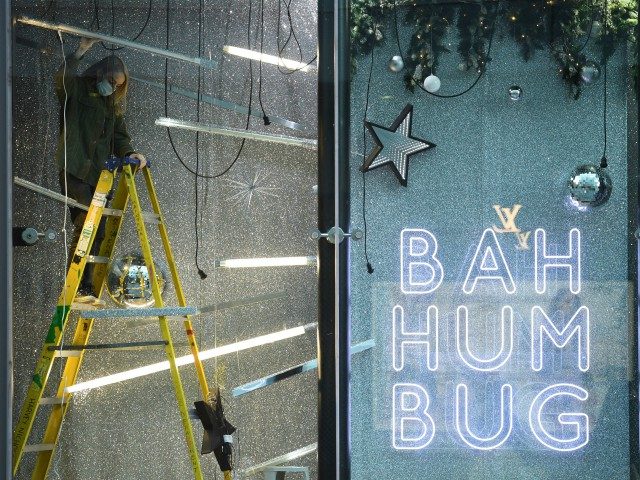A health minister has been forced to deny reports that Cabinet Office officials are considering a stricter “Plan C” for handling the coronavirus pandemic during Winter, which could include banning households from mixing.
On Wednesday evening, Health Secretary Sajid Javid did not, as initially feared, announce the introduction of Plan B measures — which could include the return of mask mandates and working from home, or even the introduction of domestic vaccine passports — but warned that to “keep your freedoms” in the coming months, Britons must get vaccinated.
However, sources had reportedly told The Telegraph last night that officials were working on more strict measures, including a return to the banning of households mixing, such as during previous lockdowns, if Plan B does not work.
The last lockdown in England saw household mixing banned from January to May of this year. If brought it this year, it could impact Christmas, forbidding relatives from seeing each other during the holy season in the same way that much of southern England was abruptly thrown into restrictive measures days before Christmas of last year.
While the measures would again dictate the movements of citizens in their day-to-day lives, it would mean businesses remaining open, with a Whitehall source telling the Tory-leaning newspaper that the measures: “The focus is very much on measures that can be taken without a major economic impact, so keeping shops, pubs and restaurants open but looking at other ways to reduce the risks.”
Speaking to Sky News on Thursday, health minister Edward Argar denied the claims, saying that Plan C is “not something I’m aware of”.
“I check it out, and I am told there isn’t [such a plan]. That is not a story with foundation. Of course, as a government, we look at, as we’ve done without our Plan B, alternatives, and way that you might, if you needed to, start easing that pressure [on the NHS]. But the specifics in that, what was mooted in it, as I understand… is that it isn’t something that is being actively considered,” Mr Argar told Kay Burley.
No Lockdown… For Now! Govt Tells Britons to Behave if They Want to Keep Freedoms https://t.co/4XwHpACPdf
— Breitbart London (@BreitbartLondon) October 20, 2021
Ahead of Mr Javid’s announcement that the government would not be bringing in Plan B restrictions, the NHS Confederation, which is a membership organisation for bodies that provide National Health Service services, demanded that the rules be implemented now, with its head Matthew Taylor claiming that the NHS is “right at the edge” of collapse.
Mr Taylor had even referenced a so-called “Plan C”, saying before the publishing of the Telegraph piece mentioning the measures: “…health leaders need to understand what a ‘Plan C’ would entail if these measures are insufficient.”
The government experienced further pressure after Javid’s announcement, with the British Medical Association (BMA), a trade union for doctors, calling the Johnson administration “willfully negligent” for not implementing Plan B and demanding the immediate introduction of restrictions.
BMA Chairman Dr Chaand Nagpaul said according to the BBC that doctors have “categorically” said the time to introduce Plan B “is now”.
“It is therefore incredibly concerning that [Mr Javid] is not willing to take immediate action to save lives and to protect the NHS,” Dr Nagpaul said.
England still remains the most relatively free country in the United Kingdom, with domestic vaccine passports in place in Scotland and Wales. Scotland, Wales, and Northern Ireland all have mask mandates, with the latter also considering Covid passes and social distancing if hospital admissions rise.
Chris Green MP warned earlier this month when the vaccine passport was brought into Wales that it was only a matter of time before the restrictions are imposed in England.
Yeah, Sure: UK Govt Minister ‘Rules Out’ Winter Lockdown, While NHS Pushes ‘Plan B’ Restrictions https://t.co/Vyy3qulJTH
— Breitbart London (@BreitbartLondon) October 20, 2021

COMMENTS
Please let us know if you're having issues with commenting.